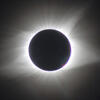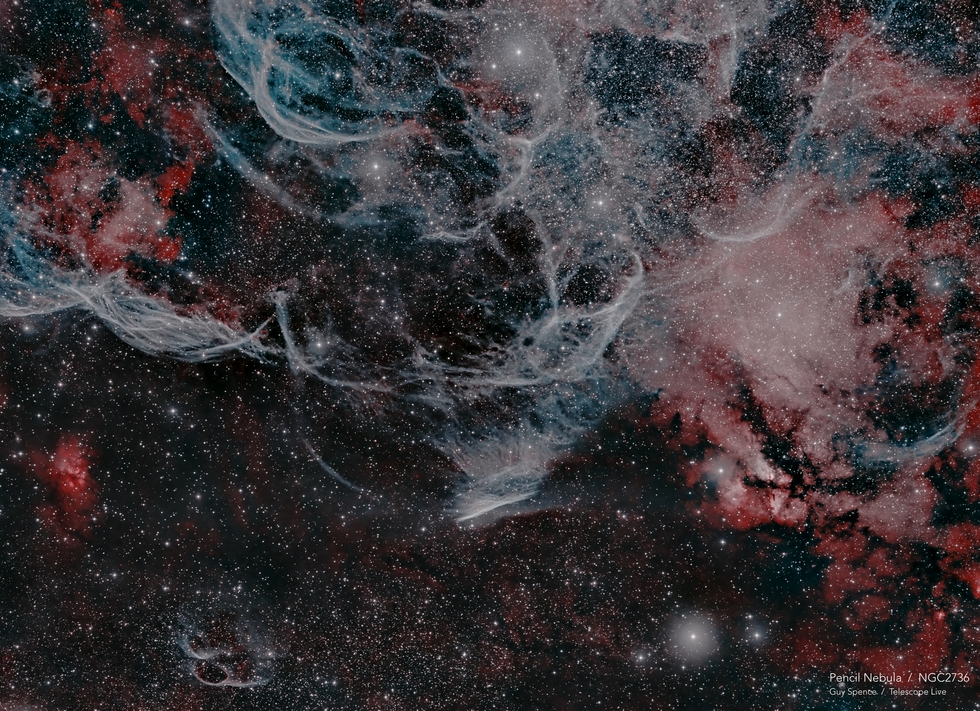NGC2736 / Pencil Nebula
NGC2736 / Pencil Nebula
NGC 2736, also known as the Pencil Nebula, is a small, narrow, bright nebula in the constellation Vela (The Sail). It is a part of a more significant supernova remnant called Vela Supernova Remnant, which resulted from a supernova explosion about 11,000 to 12,300 years ago.
The Pencil Nebula is approximately 0.3 light-years long and is composed of ionized gas, mostly hydrogen, that emits light in the red and blue parts of the spectrum. The nebula is illuminated by the radiation from a nearby star, which ionizes the gas and causes it to glow. The nebula's shape is believed to be the result of the shock wave from the supernova explosion interacting with the surrounding interstellar medium.
The Pencil Nebula is not visible to the naked eye and can only be observed with a telescope. It was first discovered by the American astronomer Frank Elmore Ross in 1939, and its distinctive shape has made it a popular target for astrophotography.
ChatGPT, with edits
The Pencil Nebula is approximately 0.3 light-years long and is composed of ionized gas, mostly hydrogen, that emits light in the red and blue parts of the spectrum. The nebula is illuminated by the radiation from a nearby star, which ionizes the gas and causes it to glow. The nebula's shape is believed to be the result of the shock wave from the supernova explosion interacting with the surrounding interstellar medium.
The Pencil Nebula is not visible to the naked eye and can only be observed with a telescope. It was first discovered by the American astronomer Frank Elmore Ross in 1939, and its distinctive shape has made it a popular target for astrophotography.
ChatGPT, with edits
SPECIFICATIONS
Telescope
AUS-2, Takahashi FSQ-106ED
Camera
CCD
Location
Heaven's Mirror Observatory, Australia
Date of observation
21.11 thru 22.04
Filters
Ha, OIII, SII (Bi-Colour processing)
Processing
PixInsight, RC Astro tools & Pixelmator Pro
Credits
Guy Spence / Telescope Live



